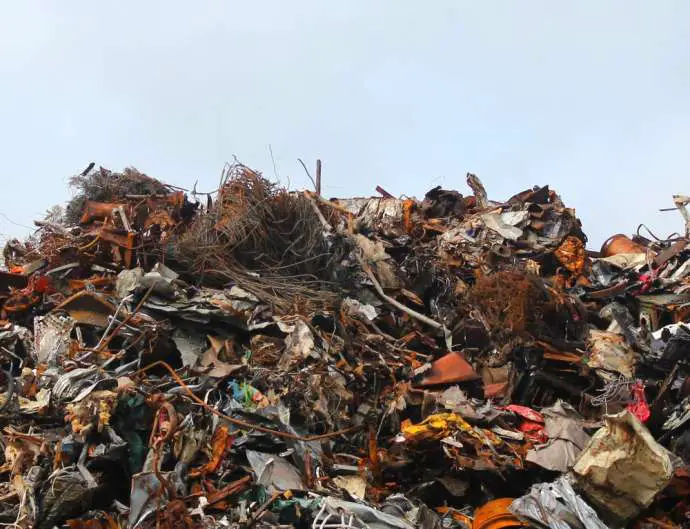STA, 8 August 2019 - Hazardous waste processing company Kemis will decide within 15 days whether to appeal against a decision by building inspectors to remove the facilities it has built after it was hit by a devastating fire in 2017. Nevertheless, it will stop accepting waste today, the Vrhnika-based company said in a release on Thursday.
The facilities that the chemical waste processing company renovated extensively after the May 2017 fire were found to be illegal construction.
The Environment and Spatial Planning Ministry inspectors said Kemis should have obtained a building permit for a newly-built underground water tank, which is part of an upgraded anti-fire system.
However, no building permit is required for the comprehensive renovation work Kemis undertook after the fire, which caused considerable damage to the environment.
Kemis stopped receiving waste of its business partners in Vrhnika a day after it received the decree to stop using the facilities immediately and remove them by 30 June 2020.
The firm reiterated today the entire renovation, including the construction of the underground water tank, had been carried out under constant supervision of the ministry's inspectors.
The company believes "it is highly unusual that almost two years after the renovation was launched, the same state body took a diametrically opposite decision".
Kemis relaunched full-scale operations after the fire last February, when it said it had met all the conditions from the environmental permit.
This is why it is "extremely worried" about the decree, which it labelled "an unreasonable measure".
The company also said it had processed over 13,000 tonnes of waste generated by Slovenian companies, public sector institutions and households over the last six months, which would have otherwise presented a serious risk to the environment.
Despite Kemis's making the waste processing facilities safer, Vrhnika locals and local authorities have been pushing for the firm to leave town ever since the fire.
Also worried about the latest development is the Chamber of Public Utilities at the Chamber of Commerce and Industry (GZS).
It fears toxic waste will start piling up at waste collection companies and at companies generating toxic waste, as was the case after the Kemis fire.
Apart from Saubermacher Slovenija, Kemis is the only major company which can process the majority of dangerous waste in Slovenia.
Chamber director Sebastijan Zupanc told the STA today that Kemis's closure could result in toxic waste accumulation around the country, which would have several smaller hot spots that would be a serious risk to public health and the environment.
He noted this was exactly what had happened two years ago when Kemis was hit by the fire. "Collection of hazardous waste almost fully stopped back then."
While some makeshift solutions were found until Kemis was back in business, "I don't know what will happen now", he added.
At the time, a smaller share of toxic waste was redirected to Saubermacher Slovenija, which told the STA today it was hard to say how much waste it could take.
It depends on the type of waste and on whether some could be exported, said director Robert Čajič, who expects companies generating or collecting waste to start turning to Saubermacher in coming days.
Zupanc stressed Slovenia had no facilities to store toxic waste for longer periods of time.
What is more, waste collection companies are banned by law from storing too much waste, risking to lose their operating licence and environmental permit.
Zupanc said Kemis had upgraded the waste-processing plant in line with the state-of-the art technologies and top-level fire security, whereas temporary storage facilities at waste collection companies are far from being that safe.
The renovation of Kemis facilities and equipment cost around EUR 6.5 million, EUR 5.5 million of which came from insurance, according to early figures from February.
Similarly worried at the inspectors' decision is the GZS, which wondered whether Slovenia is willing to risk new ecological catastrophes.
The GZS fears the decision could lead to keeping waste in inappropriate places, to dumping it illegally and processing it in an unprofessional manner.
Noting that not only industry but also households and individuals generate waste, the chamber stressed it was vital for the corporate sector to be able to ship waste to qualified companies. If that option is not available, companies could reduce output or even close shop.
The GZS thus called on the government to promptly and effectively address waste management, a sensitive issue which goes beyond the purview of the Ministry of the Environment.






